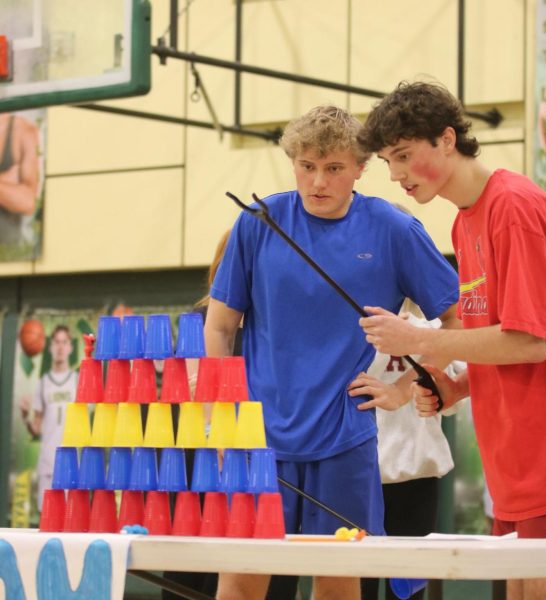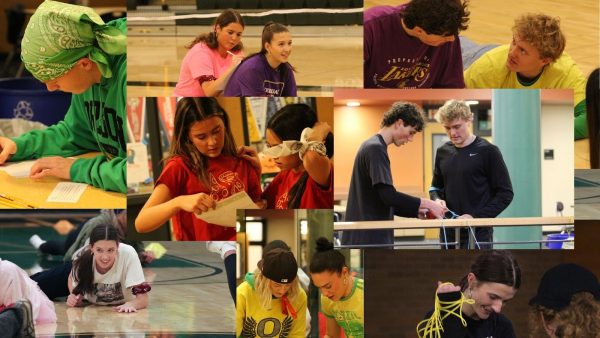‘We don’t want you to go hungry’
How educators are keeping meals affordable for students following COVID-19.
Students filling their trays at the fruit cart in the cafeteria. These carts are available everyday during lunch.
During the height of COVID-19, Oregon schools were given grants in order to serve meals for free. Starting in the 2022-2023 school year, these grants are no longer being handed out. Lunch is now $3.75, breakfast is $2.25, and milk purchased on its own is $.75. What’s changed?
“The folks who issued those grants said, ‘It’s time, we’re now through [COVID-19] as far as quarantining goes,” Cheryl Wilson, school social worker, said. “And so it’s time to bring it back to a normal process.”
Now that school is back full-time, with no mask mandate, the state is no longer giving funds for free lunches.
“[Administration] decided the best thing to do was to be providing all lunches for free so that no one would be ostracized or stand out… it was an inclusive process,” Wilson said.
Before COVID-19, students were able to apply for a meal-program, which allowed them to get lunch and breakfast for free or at a reduced price. Students who were not in this program paid the regular price. Since the new school year started, this option is available again. To get in, a student or family must fill out an application form to see if they’re eligible.
“The truth is, it’s very confidential information,” Wilson said. “It’s done in a way to protect the confidentiality of families. So the families would fill out a form, that form goes to the district office, and then they make a determination.”
Wilson made it very clear that the intent is that no one feels singled out, or that their personal information is being made public.
“Sometimes it’s just, you know, there are cases [where] a family just says, ‘I can’t afford it’. Then you work with your counselor,” Wilson said. “And if you don’t qualify, based on the filling out the form process… your counselor could help you find another way of making sure you get lunch.”
Administrators and staff have been working to make school a safe and inclusive environment for everyone. Counselors are always available to help get students, in many ways. “We’re here to help you in your mental health. In your physical needs, and your problem solving needs.” Wilson said.
“We all care about our kids, we don’t want [people] to go hungry,” Wilson said. “All educators are aware that people need to have nutrition, to be able to, you know, succeed and be successful and function.”
Your donation will support the student journalists of West Linn High School. Your contribution will allow us to continue to produce quality content by purchasing equipment, software, and continuing to host our website on School Newspapers Online (SNO).

Edie Himmer, senior, is the Editor-in-Chief for wlhsNOW and the Chair of the Editorial Board. This is her third year in the journalism program and she...



![Reaching out. Christopher Lesh, student at Central Catholic High School, serves ice cream during the event on March 2, 2025, at the Portland waterfront. Central Catholic was just one of the schools that sent student volunteers out to cook, prepare, dish, and serve food. Interact club’s co-president Rachel Gerber, junior, plated the food during the event. “I like how direct the contact is,” Gerber said. “You’re there [and] you’re just doing something good. It’s simple, it’s easy, you can feel good about it.”](https://wlhsnow.com/wp-content/uploads/2025/03/interact-1-edited-1200x744.jpg)
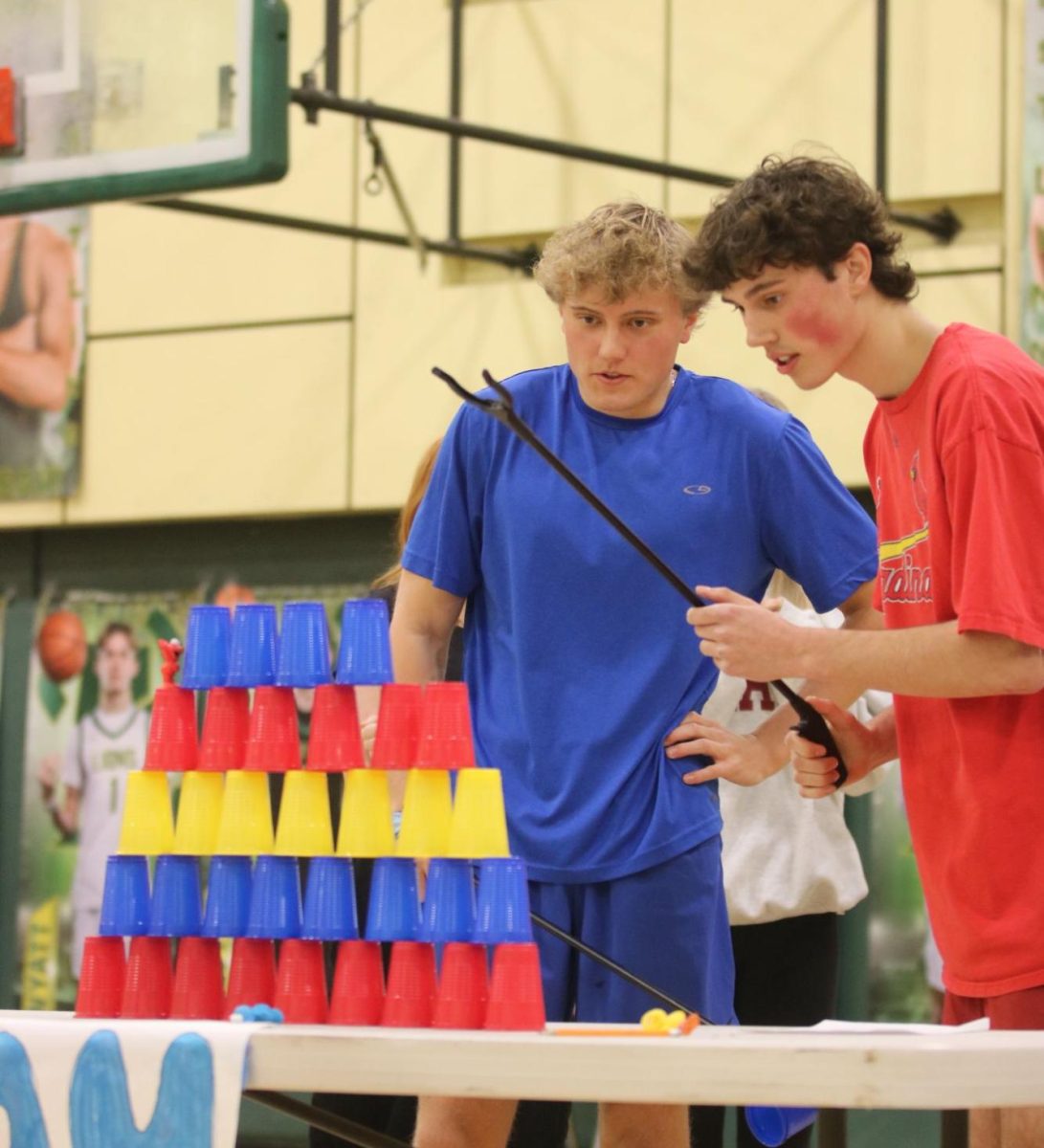
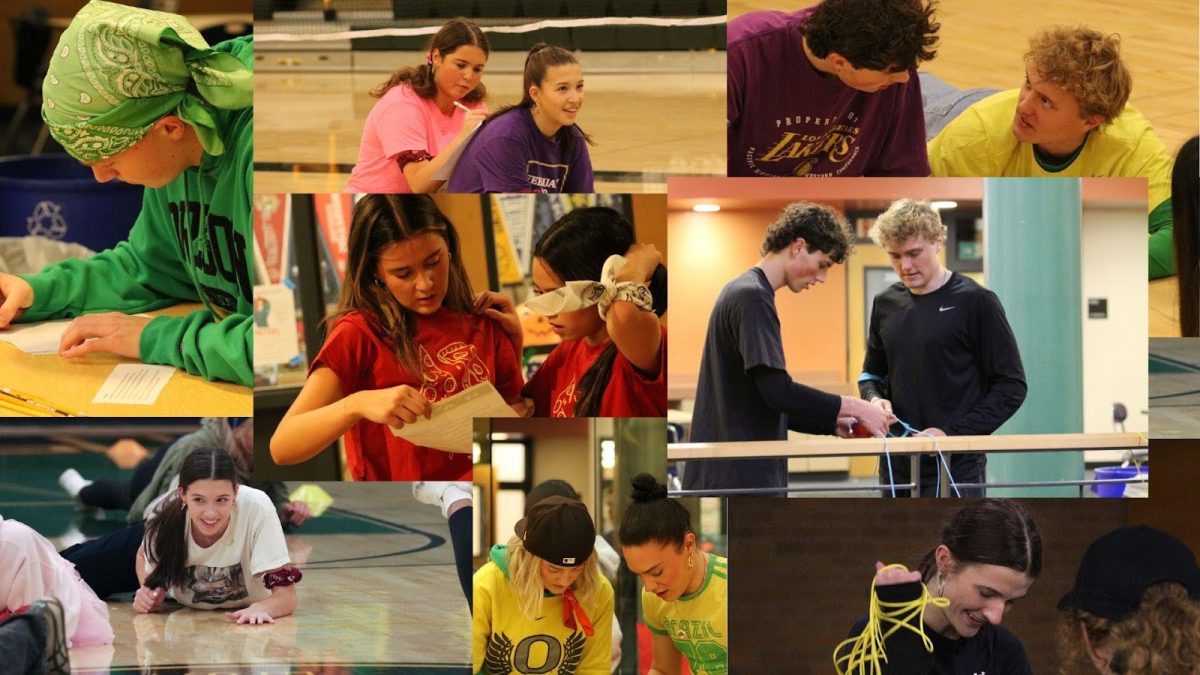




















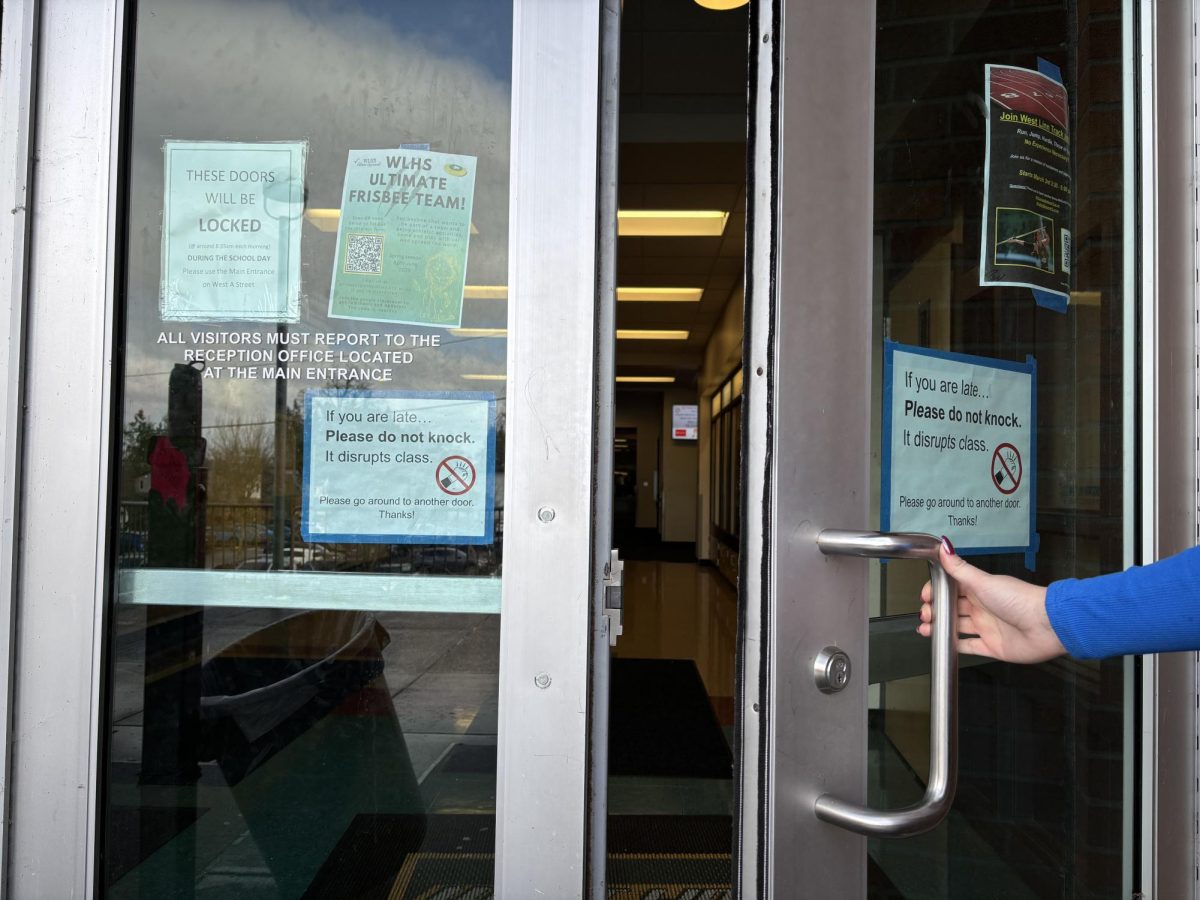
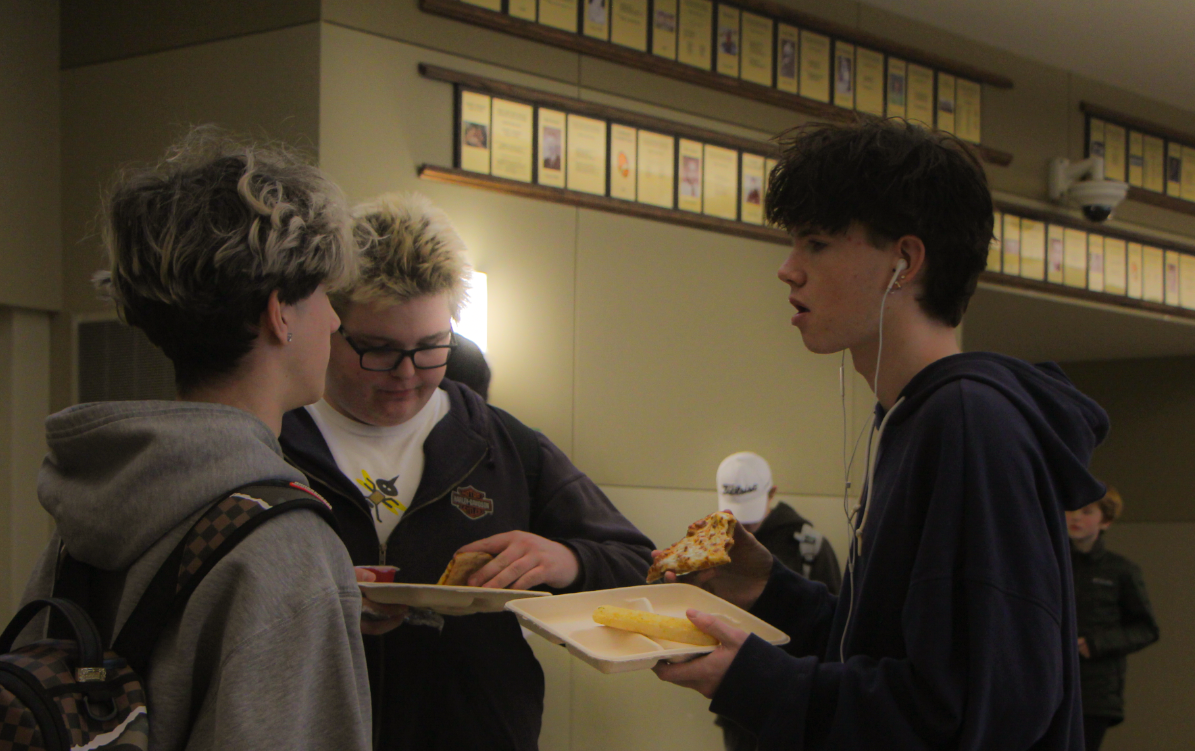


















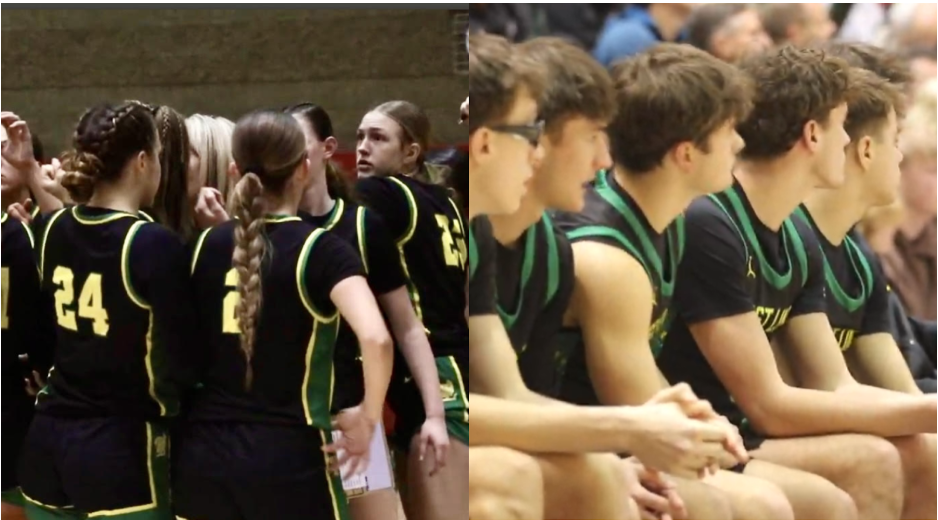

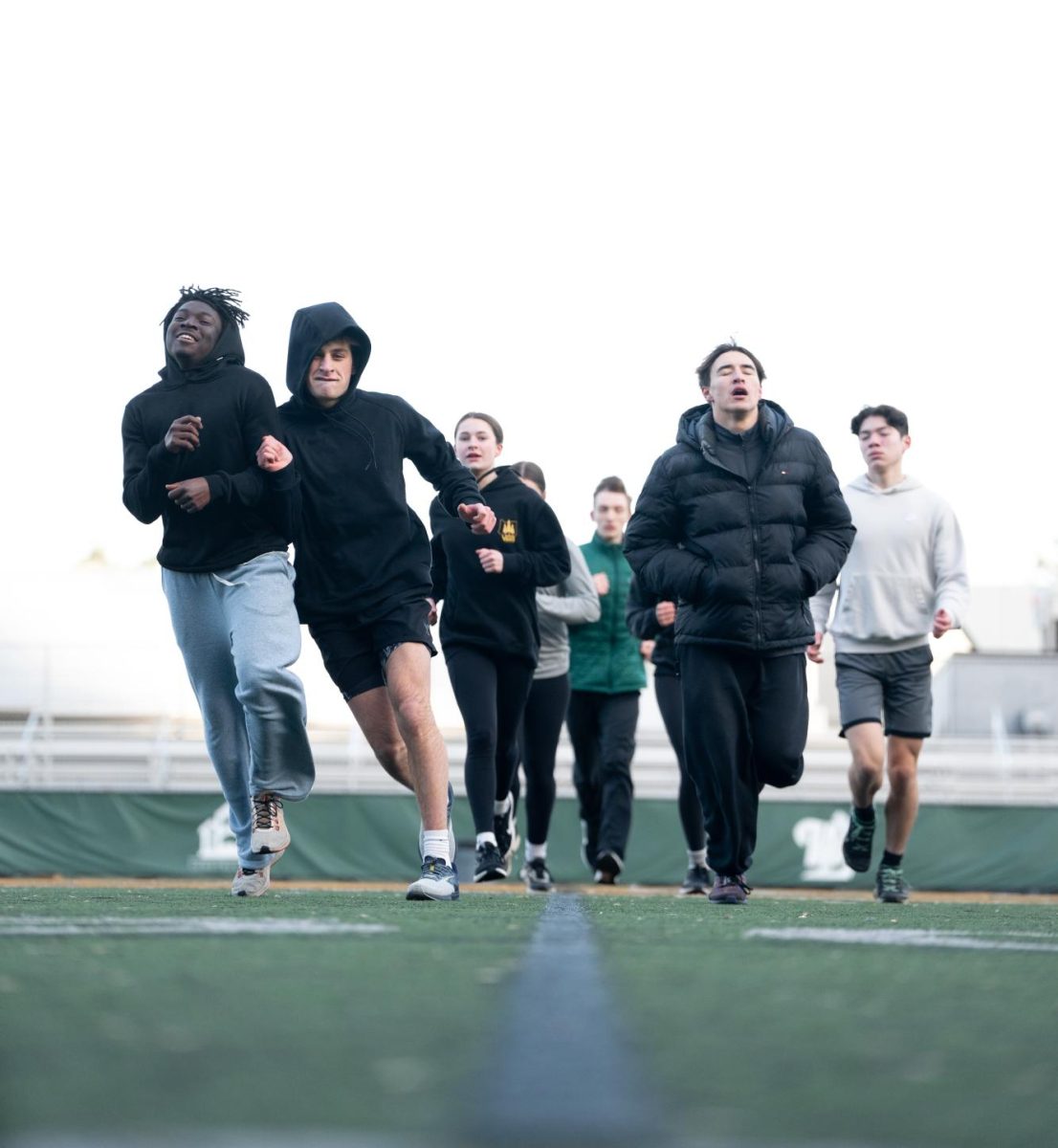
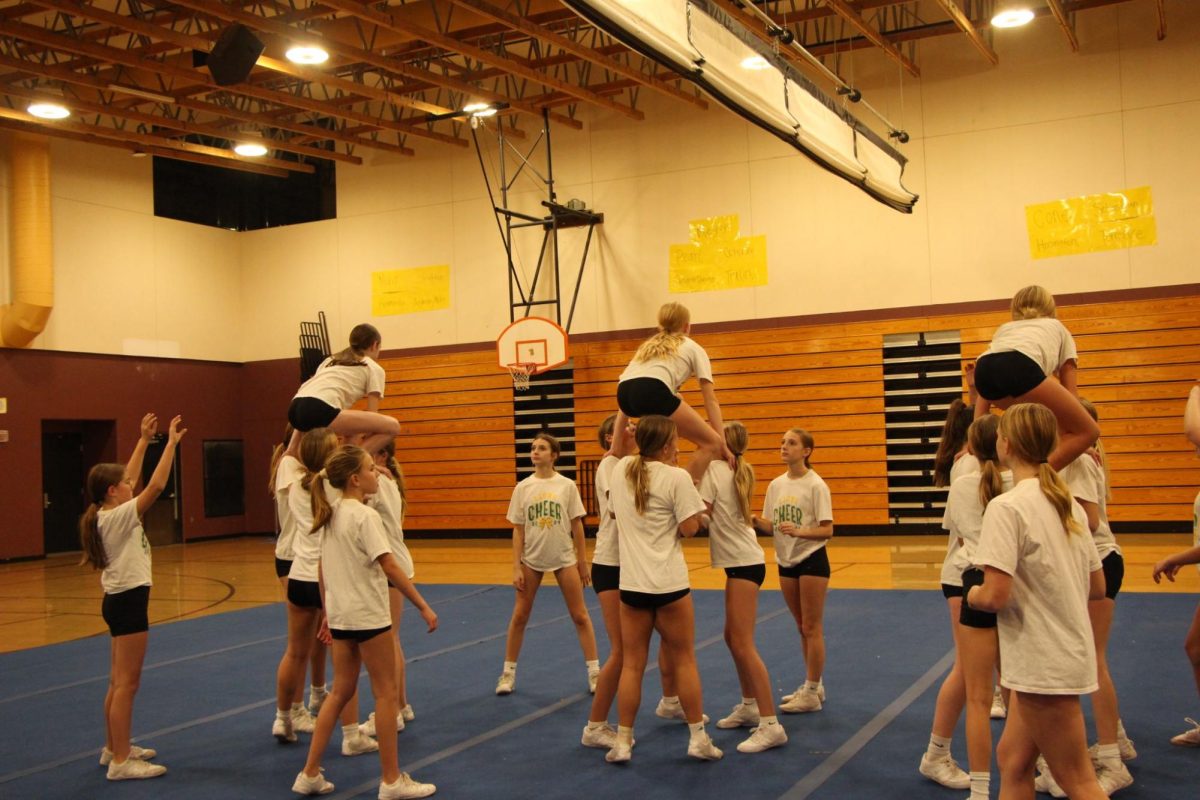







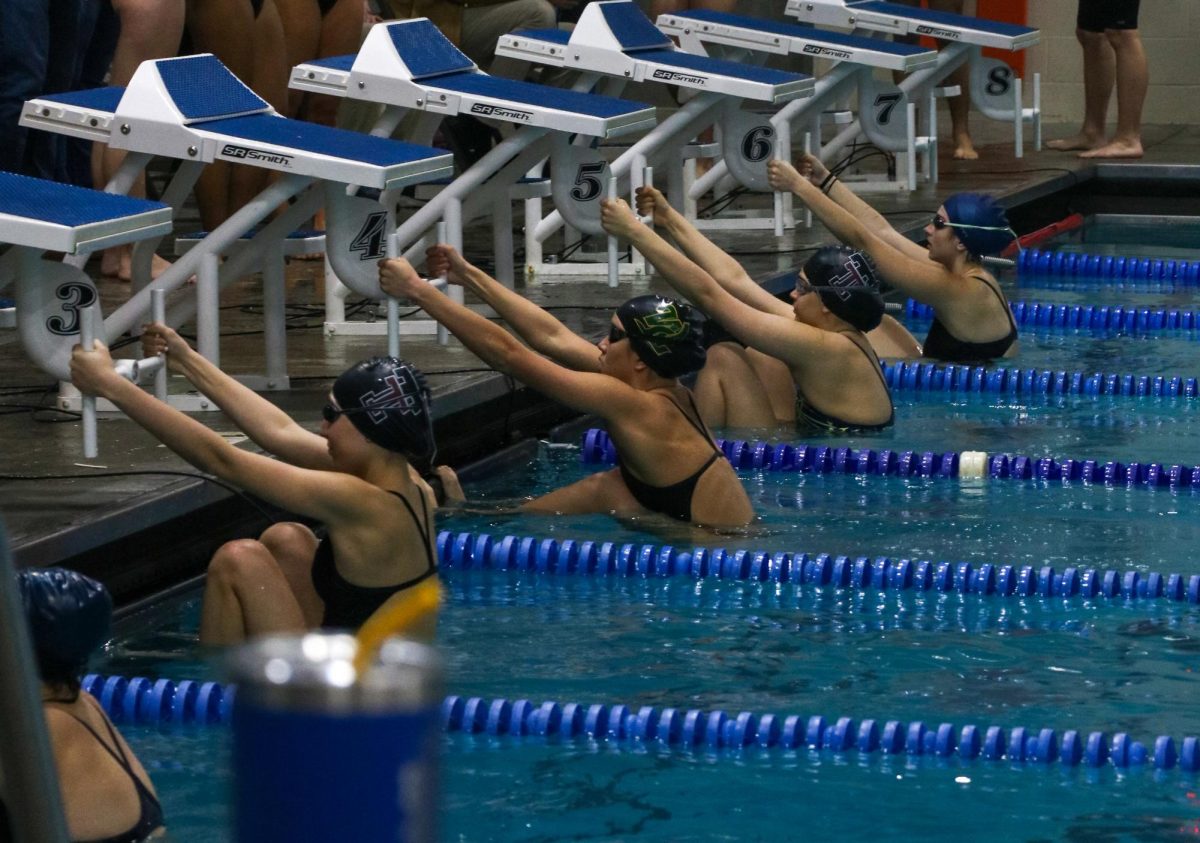
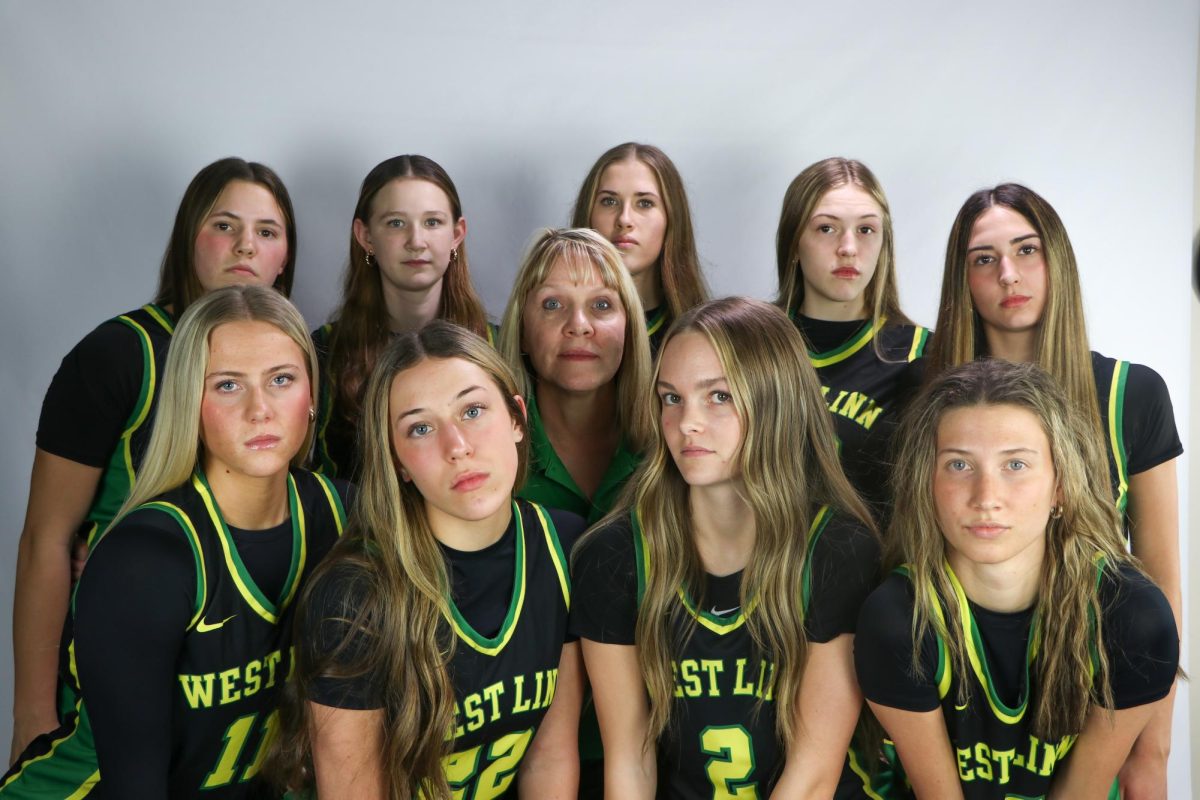
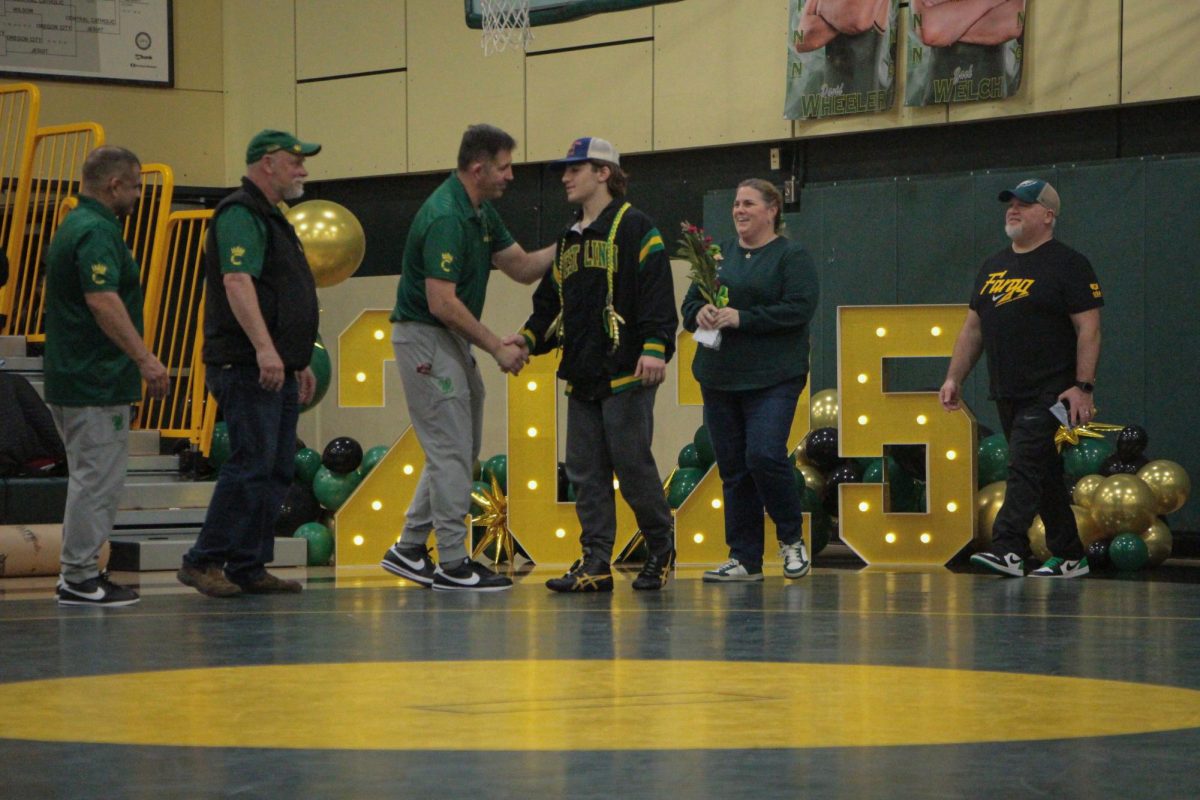




![At the bottom of the third inning, the Lions are still scoreless. Rowe stands at home plate, preparing to bat, while Vandenbrink stands off to the side as the next batter up. Despite having the bases loaded, the team was unable to score any runs. “It’s just the beginning of the season. We’re just going to be playing out best by June, [and] that’s where champions are,” Rowe said.](https://wlhsnow.com/wp-content/uploads/2024/03/IMG_3077-1200x900.jpg)




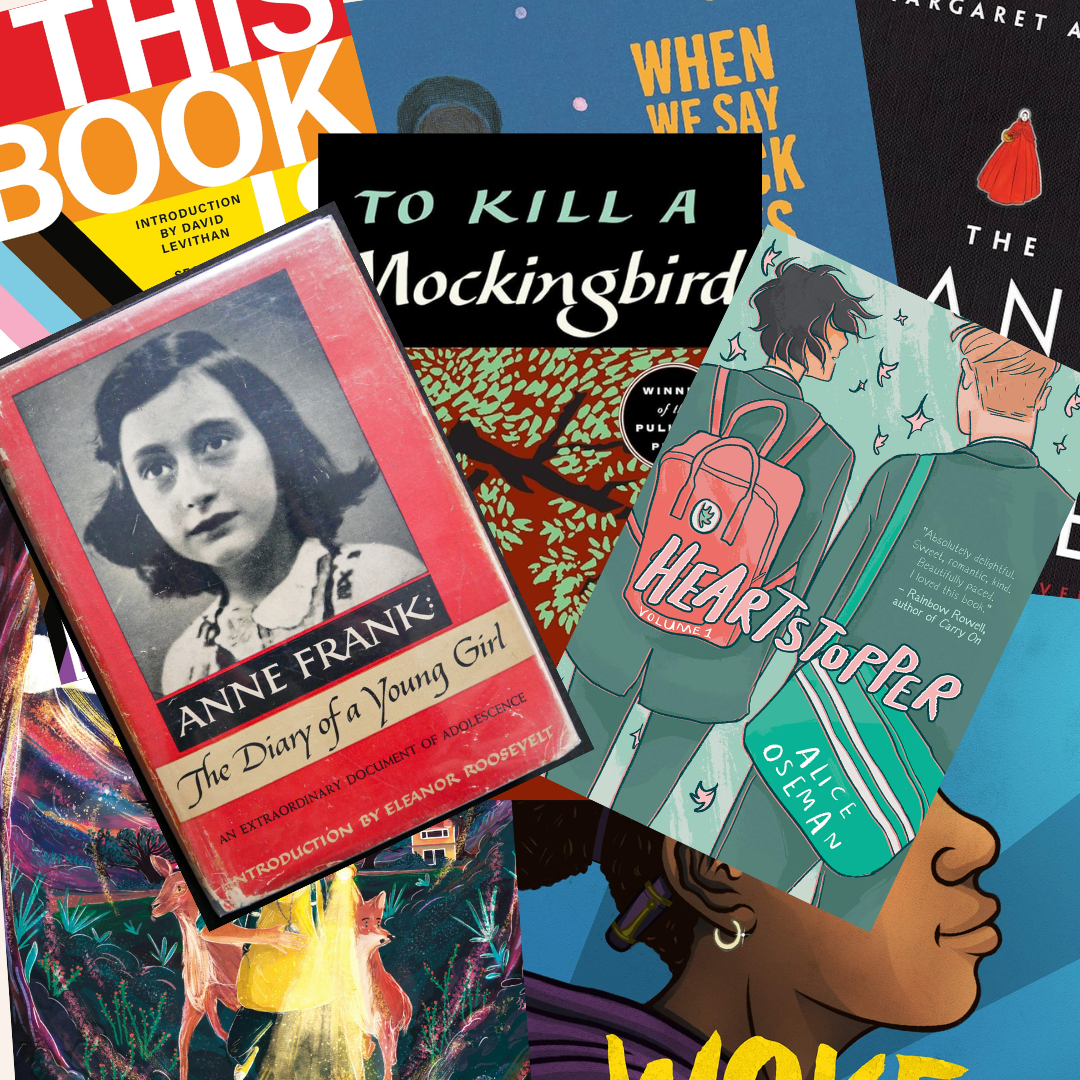
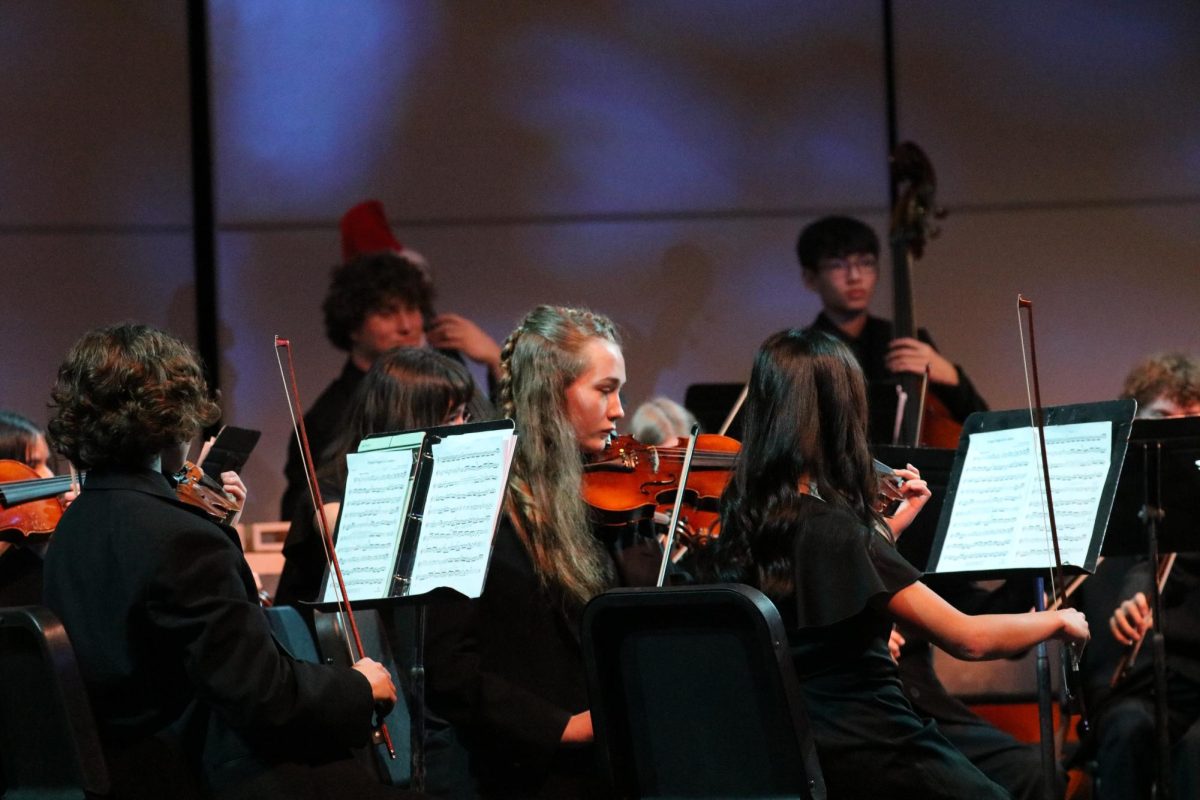












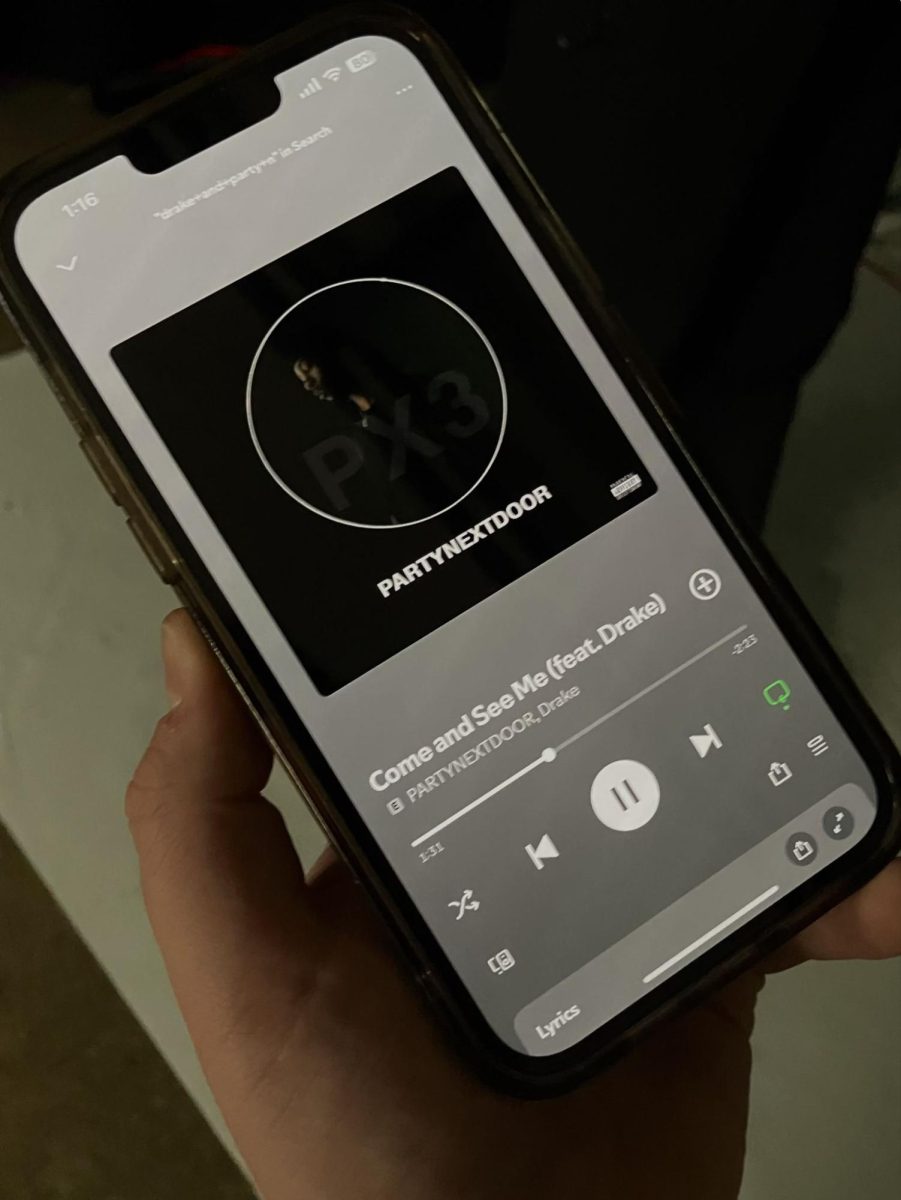






























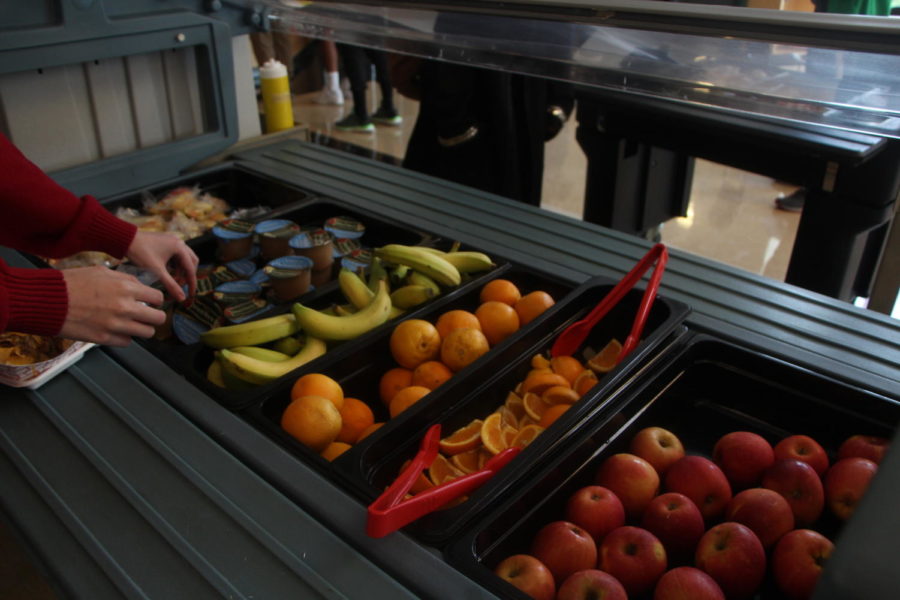


![Reaching out. Christopher Lesh, student at Central Catholic High School, serves ice cream during the event on March 2, 2025, at the Portland waterfront. Central Catholic was just one of the schools that sent student volunteers out to cook, prepare, dish, and serve food. Interact club’s co-president Rachel Gerber, junior, plated the food during the event. “I like how direct the contact is,” Gerber said. “You’re there [and] you’re just doing something good. It’s simple, it’s easy, you can feel good about it.”](https://wlhsnow.com/wp-content/uploads/2025/03/interact-1-edited-600x372.jpg)
